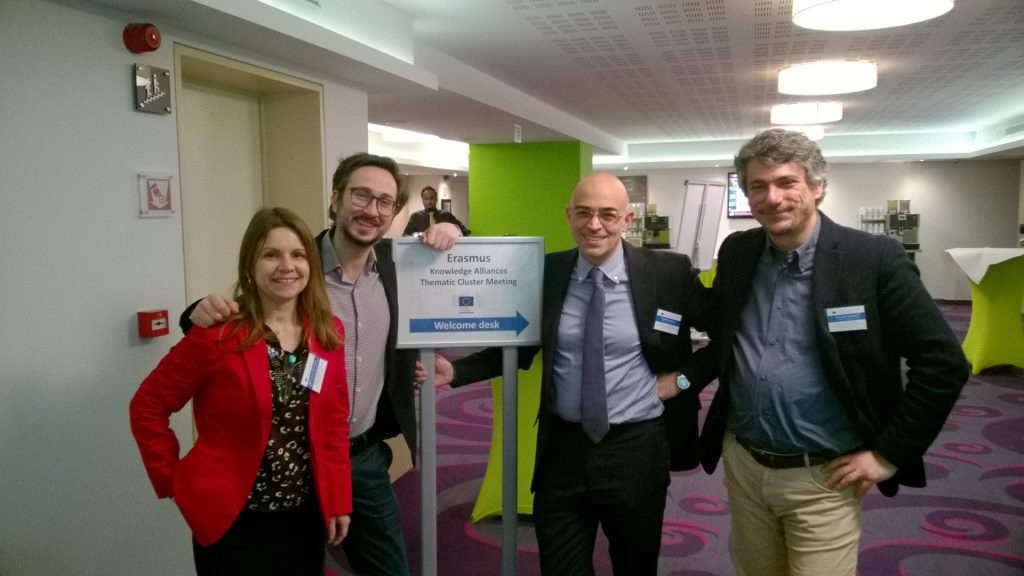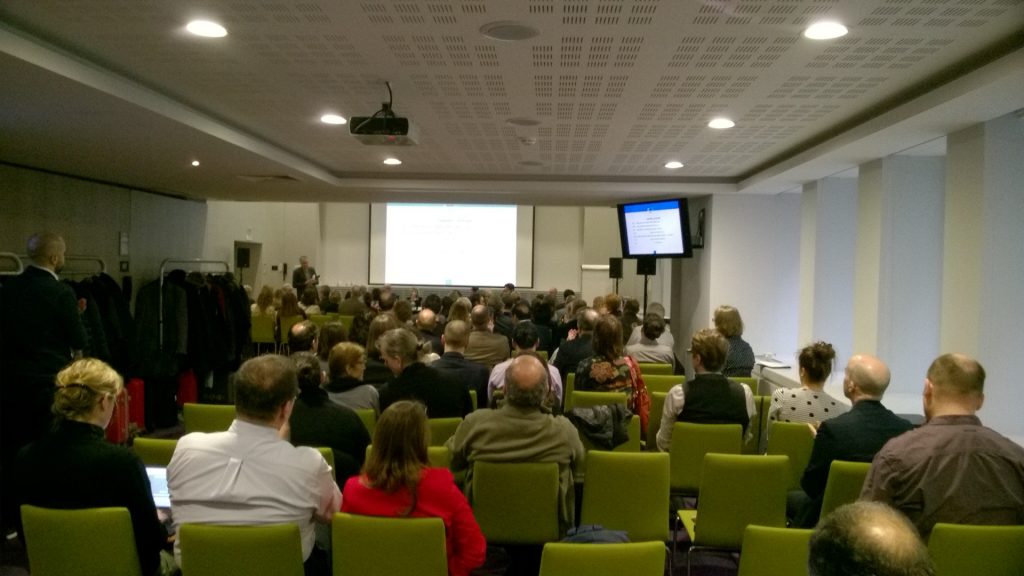On January the 31st and February the 1st, the third “Erasmus+ Knowledge Alliances thematic cluster meeting on University-Business Cooperation” has been held in Brussels.
The aim of the conference was to exchange experiences and best practices among the various KA groups, help the valorisation and dissemination of the various projects results, and, by assessing the impact obtained so far and discussing the various lesson learned, provide useful insights to prepare the successor of Erasums+ program.
Four representatives from the beFORE team were present at the event: our project coordinator Anna Sacio-Szymańska, which explained the goals and the achievements of the project to the other KA participants, and the researchers Alessandro Guadagni, Gualtiero Fantoni and Riccardo Apreda.

The meeting highlighted a very lively and growing community: there are 40 ongoing projects and 22 about to start, (out of 786 applications received), and every year the number of both applicants and winners has constantly increased. Also at the level of knowledge areas covered there is a great richness and diversity, the following is an incomplete list of the topics touched by the 62 funded projects.
- Entrepreneurship (including web and e-entrepreneurship)
- ICT, cloud, big data, software tools for knowledge transfer, co-creation or MOOCs
- New skills and competences (in various fields), co-working & learning, coaching, (e-) mentorship
- New teaching and learning methods including reality-based / real life problems, gaming
- Circular/bio/green economy, eco-innovation, sustainable energy, environment, water
- Agriculture, plant breeding, food labs
- Engineering, industry, manufacturing, logistics, transport
- Life science and health, medical/pharmaceutical studies
- Social inclusion/responsibility, diversity, gender, refugees/immigrants, international security
- Stress management, healthy lifestyle, health at work, well-being
- Culture, theatre, music, art
A comprehensive description of all projects as well of the results achieved can be found in the dissemination platform of the Erasmus+ program – https://ec.europa.eu/programmes/erasmus-plus/projects/
An interesting section of the platform is dedicated to success stories, i.e. those projects that, at the same time, are representative for the action, show the added value of EU funding, tell an engaging story to EU citizens, and are easily transferable to different contexts.
This year success story is the “SMEs and HEIs in Innovation Partnerships (SHIP)” project, which produced 114 different tools and 5 online modules to boost technology transfer and territorial partnerships between SMEs and High Education Institutions.
Other useful links are the study about university-business cooperations: https://www.ub-cooperation.eu and the knowledge alliance community: https://www.yammer.com/universitybusinesscooperationnetwork/?show_login=true a unique place for sharing experiences, involving all KA teams.

Part of the discussion during the meeting was about understanding the barriers that hinder the collaboration between universities and companies, and propose facilitators and good practices to foster such collaboration. The main obstacle has been identified in the lack of understanding and trust between the parties, followed by the burden of bureaucracy and the issue of funding.
Among the proposed solutions to build trusted relationship and understanding what other side is thinking, are the introduction of mediators that will facilitate communication, the set up of need-oriented meetings between partners, the empowerment of alumni associations.
Very good suggestions emerged also for the dissemination activities and for the sustainability issue; in particular the idea is to focus on long term funding capacity, instead of relying on EU funding only, through a diversified range of sources (donors, investors, fees, sponsorships…).
Another topic was what are the innovative aspects introduced by the various KA project. An incomplete list include new topics and competencies in the educational programs, new methodologies for collaborative learning or problem solving, and programs aimed at new jobs, not covered by traditional curricula.
A final discussion session dealt with the assessment of impact; the participants pointed out the importance of finding authentic evidences of impact, of monitoring the results even after the end of the project, and commented on the dialectics, in the correct evaluation procedure, between output and outcome, and between achievements and impact.
To sum up, the beFORE team discussed several interesting and useful topics, learning a lot from colleagues, and hopefully giving its little contribution to the discussion, and came back home with various suggestions for improvements, ideas for new projects and a network of potential future collaborations.
